Among the many Ripple Effect UBC events, the Eat Bugs one was the most eye opening to me. Entomophagy is the consumption of insects by humans and I learned this term through the September 26 Ripple Lab hosted by Dr Yasmin Akhtar. Dr Akhtar began by exclaiming that bugs are sustainable, nutritious and delicious!
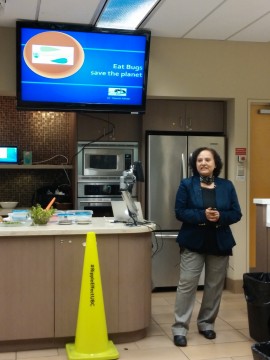
Dr Yasmin Akhtar on entomophagy
I was skeptical as I looked around at the food samples with silk worms and crickets sprinkled on top. She asked the audience who has not eaten bugs before and after a few of us raised our hands, she replied, “You’re lying!” Then she proceeded to give us astounding facts such as peanut butter contains on average 30 or more insect fragments per 100 grams. Perhaps you don’t eat peanut butter, what about using ground pepper in cooking? Well that can contain on average 475 or more insect fragments per 50 grams. Certain amounts of insect fragments in food is approved by the FDA.
She argues that we are already eating bugs without knowing it so the most important part is our perception of bugs. They’re associated with filth and disease but the good benefits they bring are abundant protein and are sustainable to harvest compared to conventional livestock. For example, insects use significantly less water than livestock.
Dr Akhtar demonstrated potato ball and samosa recipes incorporating cricket powder. It was definitely one of the most unique cooking demonstrations I’ve seen since it incorporated insect powder!
So how did the food taste? I tried the chocolate cricket bark and it tasted like chocolate with a hint of coconut oil and some crunchy caramel bits. If I didn’t know there were crickets inside, I wouldn’t have been able to tell the difference. I also tried a guacamole sprinkled with silk worms and the silk worms tasted like a crunchy nut. I was surprised that it tasted nutty!
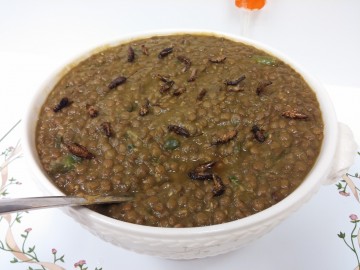
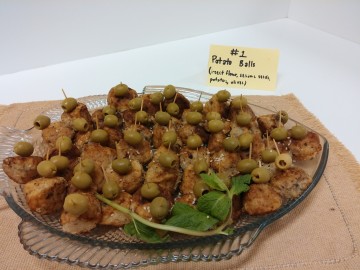
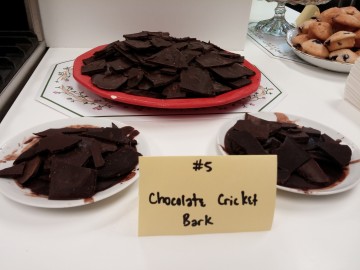
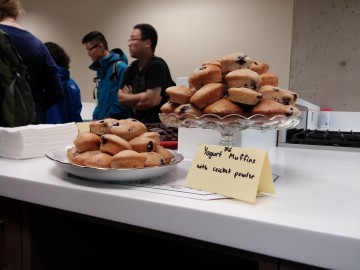
If changing your diet to incorporate bugs to be sustainable is too hard to swallow, learn about more sustainability ideas at rippleeffect.sustain.ubc.ca.
For more information on edible insects visit www.fao.org/forestry/edibleinsects.
-Vivien Lee, UBCevents Communications Assistant